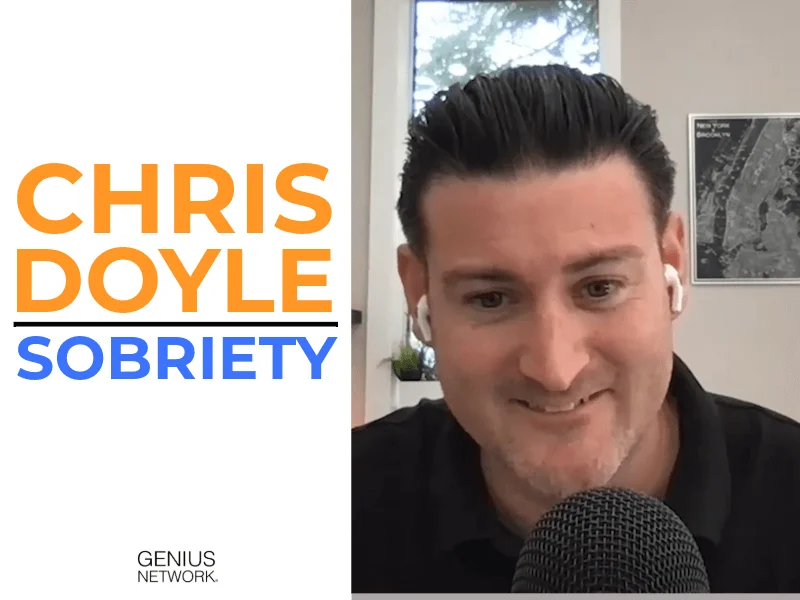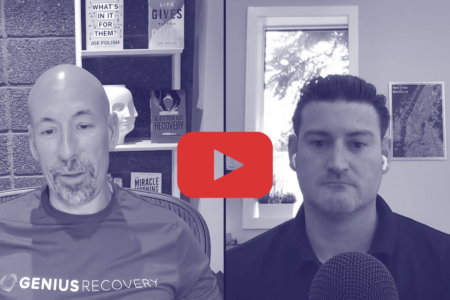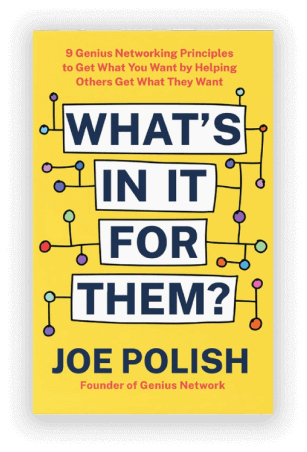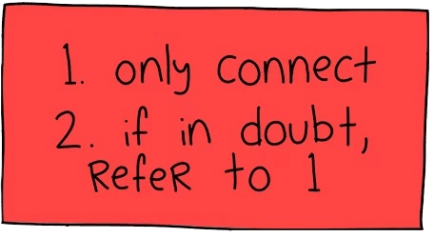
Overcoming The Hidden Battle Understanding Addiction with Christopher Doyle and Joe Polish #211
Episode Summary
Here’s a glance at what you’ll discover from Chris in this episode:
- Discover why 94.7% of people with substance use disorders don’t perceive the need for help and the critical role external factors play in achieving sobriety.
- From Firefighting to Life-Saving: Learn how Christopher Doyle’s journey from being a New York City firefighter to a seasoned interventionist is transforming the lives of individuals and families battling addiction.
- The Delusion of Control: Dive into the mind of an addict and understand the powerful delusion that they can manage their substance use, despite overwhelming evidence to the contrary, and what to do about it
- Breaking the Cycle: The profound impact of growing up in a recovery household and how it shaped Christopher’s unique approach to helping families navigate addiction.
- Beyond the Surface: Why addiction isn’t just about substance use but a symptom of deeper issues. (Hear Christopher’s insights on addressing the root causes of addiction for lasting recovery.)
- Empathy Over Stigma: How separating your loved one from their addiction and approaching them with empathy can be the game-changer in their recovery journey.
- Get actionable advice on how to identify the right moment to intervene, present recovery opportunities, and use positive leverage to help your loved one take the first step toward sobriety.
If you’d like to join world-renowned Entrepreneurs at the next Genius Network Event or want to learn more about Genius Network, go to www.GeniusNetwork.com.
WHAT'S IN IT FOR THEM?
Get the first chapter for FREE and a limited-time viewing of "Connected: The Joe Polish Story"
Show Notes
Understanding Addiction:
- Chris defines addiction in simple terms: “can’t stop.” This two-word definition encapsulates the core of the issue, where an individual continues substance use despite negative consequences and an internal desire to quit.
- The distinction between dependence and addiction is highlighted. While someone dependent might manage their substance use, an addict typically cannot stop on their own, even when faced with severe consequences.
Chris’s Personal Journey:
- Chris shares his upbringing in a recovery household, with both parents in long-term sobriety. Despite this environment, Chris still fell into addiction, underscoring the powerful and insidious nature of the disease.
- He recounts his early experiences with alcohol, the denial that followed, and the pivotal role his mother played in his initial steps towards recovery.
The Role of Family in Recovery:
- Joe and Chris discuss the critical importance of family involvement in the recovery process. Chris emphasizes that often, the addicted individual cannot see their problem clearly and will defend their substance use.
- Chris advises against trying to reason with someone in active addiction, as their denial and delusion are too strong. Instead, he suggests offering tangible steps toward recovery when the individual shows signs of clarity or distress.
Intervention as a Tool:
- Chris explains the concept of intervention and its purpose in breaking through the denial of addiction. He discusses the importance of connecting the addicted person with helpful resources, as simply wanting to quit is rarely enough.
- Chris highlights the misconception that an addict must hit “rock bottom” or be “ready” to seek help, noting that addiction often prevents these realizations from leading to change without external support.
The Psychology of Addiction:
- The episode delves into the psychological mechanisms that keep individuals trapped in addiction, including rationalizations and extreme denial. Chris shares anecdotes from his work, illustrating how deeply entrenched these beliefs can be.
Advice for Families:
- Chris offers practical advice for families dealing with a loved one’s addiction. He stresses the importance of recognizing moments of vulnerability and using them to guide the individual towards recovery, rather than expecting them to stop on their own.
- The discussion also touches on the emotional toll addiction takes on families, and how seeking professional help, like intervention services, can provide the necessary support for both the addict and their loved ones.
The Role of an Interventionist:
- Doyle emphasizes the importance of quickly assessing an addicted individual’s situation and identifying the most suitable recovery programs. He explains that about 30% of his work involves knowing where to bring someone based on their unique circumstances.
- He highlights the importance of parents and loved ones accepting that addiction is a serious issue that cannot be overcome without intervention. Acknowledging the problem is the first crucial step in the recovery process.
Statistics on Addiction and Recovery:
- Doyle points out a startling fact: only 10% of people with addictions ever seek help, leaving 90% without the assistance they desperately need. This is largely due to a lack of perceived need for help, as evidenced by the National Home Survey on Drug Use and Health.
The Importance of External Intervention:
- Doyle stresses that waiting for an addicted person to seek help on their own is often futile. Many only begin the recovery process due to external pressures, such as legal issues, family ultimatums, or medical emergencies.
- He discusses the concept of “readiness” in recovery, noting that it often comes after the intervention, not before. External factors frequently force individuals into treatment, even if they are not initially willing or ready.
Substance Use Disorder vs. Addiction:
- The episode delves into the terminology used in the addiction field, with Doyle explaining the origins and implications of the term “Substance Use Disorder” (SUD). He contrasts it with the traditional understanding of addiction, noting that while the term SUD is useful for categorizing severity, it may overlook the deeper issues of compulsive behavior.
The Concept of the Dry Drunk:
- Joe and Christopher discuss the idea of the “dry drunk,” referring to individuals who are abstinent from substances but continue to struggle with the underlying issues that led to their addiction. Doyle acknowledges that while sobriety is critical, it’s only part of the solution. Addressing the root causes of addiction, such as trauma and mental health issues, is essential for long-term recovery.
The Journey to True Recovery:
- Both Joe and Doyle share personal anecdotes about their paths to recovery, emphasizing that it’s a long and often arduous process. They discuss how each step, no matter how small or seemingly ineffective at the time, contributes to the overall journey toward sobriety.
- Doyle explains that relapse is not a part of recovery but a part of addiction. Without proper support and resources, relapse is almost inevitable. He stresses the importance of ongoing connection to recovery resources to prevent relapse and promote sustained sobriety.
Relapse and Recovery:
- The conversation addresses the controversial notion that “relapse is part of recovery.” Doyle refutes this, asserting that relapse is actually a symptom of unresolved addiction, not a natural component of the recovery process. He explains that true recovery begins when the individual fully acknowledges their addiction and commits to addressing the underlying issues.
The Importance of Support and Resources:
- Doyle emphasizes the need for appropriate and specialized resources in recovery. He warns against rushing into the first available treatment option without proper research and highlights the importance of tailored approaches to treatment that meet the specific needs of the individual.
The Epiphany in Recovery:
- Doyle concludes with a powerful point about the “moment of clarity” that often occurs during treatment, where the addicted person finally realizes the extent of their problem. This realization, he argues, is the turning point that allows for true recovery to begin.
The Role of Family in Recovery:
- Doyle shares his personal story of recovery, highlighting how a simple invitation from his mother to attend a local 12-step meeting changed his life. He emphasizes the power of family support and how small, seemingly insignificant actions can make a huge difference in a loved one’s recovery journey.
- Families often unknowingly enable addiction. Doyle advises parents to become aware of their actions and begin to “disable” the addiction through mindful changes in behavior. This includes creating an environment that makes it difficult for the addiction to thrive.
Seizing Leverageable Moments:
- Doyle introduces the concept of the “sobriety equation,” which includes a moment of clarity, an opportunity for recovery, and positive leverage. He explains how these elements come together to create the conditions for lasting sobriety.
- The importance of recognizing fleeting moments of clarity in an addicted loved one is discussed. Doyle encourages families to be prepared to act during these moments by having resources and a plan in place.
Practical Steps for Families:
- Families are urged to shift their focus from trying to “fix” the individual to addressing the addiction itself. Doyle stresses that addiction is not the core problem but rather a symptom of deeper issues within the family system.
- Doyle advises on the importance of having a recovery plan ready, including researching potential recovery programs, 12-step meetings, or intervention options. He emphasizes the need to be prepared for when an addicted loved one asks for help.
The Impact of Media on Perceptions of Addiction:
- Joe Polish critiques the sensationalism in media portrayals of addiction, noting how shows like “Celebrity Rehab” often focus more on entertainment than providing helpful resources for viewers. He calls for a shift in how addiction is represented, advocating for more educational content that offers real solutions.
- The discussion touches on the ethics of turning human suffering into entertainment and how this affects public perception of addiction and recovery.
Intervention Techniques:
- Doyle shares his approach to intervention, which differs from the traditional methods often depicted in the media. He focuses on providing as much free information as possible and empowering families to take early action before situations become dire.
- He discusses the importance of involving the entire family in the recovery process, often recommending that family members engage in their own recovery work, such as attending Al-Anon meetings or therapy sessions. This not only supports the addicted individual but also helps heal the family system as a whole.
Hope and Encouragement:
- Both Polish and Doyle stress that addiction recovery is possible for everyone. They share stories of individuals who seemed hopeless but found sobriety, emphasizing that there is always hope, even in the darkest moments.
- Doyle encourages families to separate their loved one from their addiction, treating them with empathy and understanding rather than judgment and stigma.
The Importance of Early Intervention:
- Seven-Year Wait for Help: Chris highlights the alarming statistic that it takes an average of seven years for individuals struggling with addiction to seek help. He stresses the importance of early intervention and education to reduce this delay.
- The Role of Family Members: Joe and Chris discuss the critical role that family members play in initiating the recovery process. Chris emphasizes that families are often the catalyst for change and can help guide their loved ones towards the path of sobriety.
12-Step Programs and Long-Term Sobriety:
- The Efficacy of 12-Step Programs: Chris shares his experiences as a former firefighter and counselor, where he witnessed firsthand the success of 12-step programs in maintaining long-term sobriety. He points out that individuals who stay sober for several years almost always engage with these programs.
- Community and Support: Both Joe and Chris agree that community support is essential for recovery. Whether through 12-step groups or other forms of communal engagement, having a network of support is vital for anyone on the road to recovery.
Unique Challenges Faced by First Responders:
- High-Stress Professions: Chris delves into the specific challenges that first responders face when dealing with addiction. He notes that the high-stress nature of their jobs, combined with exposure to traumatic events, often leads to substance abuse as a coping mechanism.
- The Need for Tailored Interventions: Chris emphasizes the need for interventions that address the unique circumstances of these professions, focusing on both their personal and professional challenges.
Overcoming Fear and Resistance in Recovery:
- Facing Deep-Rooted Issues: Chris discusses the importance of confronting the underlying issues that drive addictive behaviors. He shares personal anecdotes about the fear and resistance individuals often face when dealing with these deep-rooted problems.
- The Reward of Taking Action: Joe and Chris explore the idea that taking the first step towards recovery, despite the fear, often leads to significant positive changes. They highlight the benefits of pushing through discomfort to achieve lasting sobriety.
Practical Advice for Families:
- Setting Boundaries: The conversation covers the critical topic of boundaries, especially when dealing with addiction. Chris explains that setting and maintaining boundaries is essential for both the individual struggling with addiction and their loved ones.
- Getting the Right Help: Chris advises families to focus on getting their loved ones to the right resources, whether it’s a rehab center, counselor, or support group. He stresses the importance of leaving the “staying sober” part to professionals while families focus on “getting them sober.”
Resources
- WhyIntervention.com
- GeniusRecovery.org
- Recovery Kit
- Why Intervention Podcast
- Watch This Interview on YouTube






